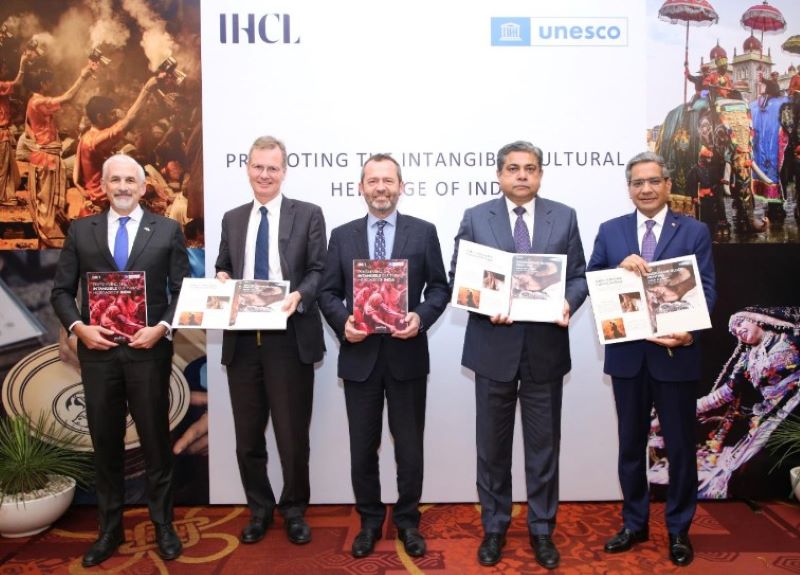
(TAN): Indian Hotels Company (IHCL) will collaborate with UNESCO to help preserve and promote the intangible cultural heritage of India, as part of a major new initiative meant to transform the travel landscape in the post pandemic world, the hotel group said.
Together, IHCL and UNESCO will offer experiential tours for travellers at various IHCL hotels, so that they can experience the living heritage of the country better. The first phase will include visits to local communities practicing art forms like Patachitra – a traditional scroll painting technique in West Bengal, Ganga Aarti – the prayer ceremony at Dasashwamedh Ghat at Varanasi in Uttar Pradesh, as well as Kalbelia performances, blue pottery making, Bagru hand block printing, and the Terracota art of Molela. Visitors will also be able to experience the unique tribal life of the Bishnoi village in Rajasthan, and Mysuru Dasara and Janpadaloka in Karnataka.
[ALSO READ: India to restart regular international flights operation from March 27]
Speaking on the occasion, Gaurav Pokhariyal, SVP and global head – human resources, IHCL, said, “Long been heralded as the custodians of Indian heritage, IHCL for over a century, has been providing sustainable platforms that preserve and promote local art and culture. We are delighted to partner with UNESCO in this industry-first collaboration to work towards preserving India’s intangible cultural heritage.”
Eric Falt, director, UNESCO, New Delhi, said, “Together with IHCL, we want to showcase to Indians and foreigners alike, the diversity of India’s living heritage. The objective is that when they visit an IHCL hotel, they are offered a chance to discover at least one cultural practice they have probably never witnessed before. Rather than bringing a dance troupe to their hotel, we will bring the visitors to the practitioners of that art form – in the midst of their community.”
[ALSO READ: Radisson Hotel Group enters Madagascar with three properties]
The 2003 UNESCO Convention for the Safeguarding of Intangible Cultural Heritage, adopted by 178 countries, emphasizes the importance of Intangible Cultural Heritage (ICH) for ensuring cultural diversity. ICH represents the “living” heritage of a country and is made up of practices, representations, expressions, knowledge, and skills, including instruments, objects, artefacts, and cultural spaces that communities, groups and, in some cases, individuals, recognize as part of their cultural heritage.




